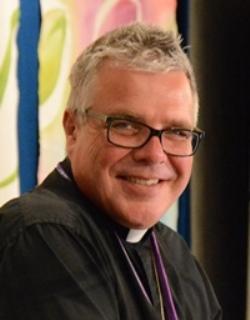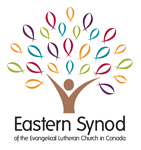
This past fall, our church began a four year deep dive into some of our primary Christian faith practices. Our National Bishop invited us to join her in a new four-year emphasis on Living our Faith, as together we pray, read, worship and love.
From September 2019 until September 2020, ELCIC members have been invited to join in a year of prayer. As a whole church, we will learn about prayer, grow in our experience of prayer and deepen our regular prayer practice both as individuals and as a church. It is a call that I very much welcome!
I have been lifting up this theme as I engage in my annual series of visits with our rostered leaders in their respective Ministry Areas. Specifically, I have asked each of the participants to bring a prayer that holds particular significance for them, to share with their colleagues. We then have a broader discussion about prayer practices and what we might do to help revitalize the prayer life of our church and its members. It’s been an instructive and encouraging exercise for me.
I have been particularly struck by the wide breadth of prayerful resources that my colleagues access in their individual prayer practices. Some use traditional liturgical forms; others use sacred readings and prayers that have been passed on to us by our ancestors in the faith. A great many of them use poetry or music, both contemporary and classical, to increase their awareness of God’s presence and to enter more deeply into it. Some take daily time to sit and pray in their church sanctuaries. Others have their most prayerful experiences in the out of doors and seek out sacred spaces in the midst of creation.
I suspect that many of us, through no fault of our own, carry a pretty minimalist definition of what constitutes “a prayer.” Prayer is primarily about directing a series of petitions, concerns and requests to God in the hope or expectation of receiving some favour in return. And while that kind of prayer certainly has legitimacy – I pray those kinds of prayers all the time – I see this year’s prayer emphasis as a much needed opportunity to go much deeper and wider.
I have come to define prayer as being any specific practice that we engage in to more fully enter into the presence of God. The purpose of any prayerful exercise is to draw closer to God; not for the purpose of obtaining some special favour or merit, but for the simple blessing of the encounter itself. It’s about increasing our awareness of God’s presence and steadfastness. It’s all about the relationship. Anything that helps you do that, be it a prayer book, a walk in the woods, a song, a paint brush, a potter’s wheel or a poem, is a legitimate means of entering into prayerful communion with our creator.
So let’s use this special year as an opportunity to claim and celebrate prayer in its broadest of definitions! Who knows, we may discover that we are a more prayerful people than we had ever imagined!
